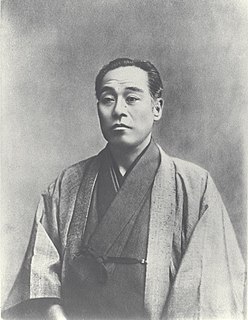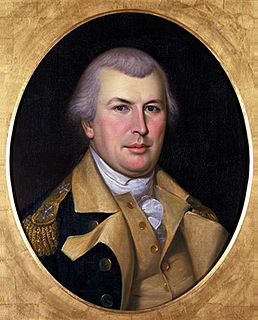A Quote by Fukuzawa Yukichi
In its broad sense, civilization means not only comfort in daily necessities but also the refining of knowledge and the cultivation of virtue so as to elevate human life to a higher plane... It refers to the attainment of both material well-being and the elevation of the human spirit, [but] since what produces man's well-being and refinement is knowledge and virtue, civilization ultimately means the progress of man's knowledge and virtue.
Related Quotes
To look upon the soul as going on from strength to strength, to consider that she is to shine forever with new accessions of glory, and brighten to all eternity; that she will be still adding virtue to virtue, and knowledge to knowledge,--carries in it something wonderfully agreeable to that ambition which is natural to the mind of man.
Everyone recognizes a distinction between knowledge and wisdom. . . Wisdom is a kind of knowledge. It is knowledge of the nature, career, and consequences of human values. Since these cannot be separated from the human organism and the social scene, the moral ways of man cannot be understood without knowledge of the ways of things and institutions.
Virtue is something you have to get good at, like playing the trombone or tolerating bores at parties. Being a virtuous human being takes practice; and those who are brilliant at being human (what Christians call the saints) are the virtuosi of the moral sphere - the Pavarottis and Maradonas of virtue.
It is important that spiritual advancement must keep pace with material advancement. When this comes to be realized man's journey toward higher and more lasting values will show more marked progress while the evil in him recedes into the background. Knowing that material and spiritual progress are essential to man, we must ceaselessly work for the equal attainment of both. Only then shall we be able to acquire that absolute inner calm so necessary to our well-being.
Learning is not virtue but the means to bring us an acquaintance with it. Integrity without knowledge is weak and useless, and knowledge without integrity is dangerous and dreadful. Let these be your motives to action through life, the relief of the distressed, the detection of frauds, the defeat of oppression, and diffusion of happiness.
And all knowledge, when separated from justice and virtue, is seen to be cunning and not wisdom; wherefore make this your first and last and constant and all-absorbing aim, to exceed, if possible, not only us but all your ancestors in virtue; and know that to excel you in virtue only brings us shame, but that to be excelled by you is a source of happiness to us.
He who by an exertion of mind or body, adds to the aggregate of enjoyable wealth, increases the sum of human knowledge, or gives to human life higher elevation or greater fullness - he is, in the larger meaning of the words, a " producer," a " working man," a " laborer," and is honestly earning honest wages.
Each member of society can have only a small fraction of the knowledge possessed by all, and...each is therefore ignorant of most of the facts on which the working of society rests...civilization rests on the fact that we all benefit from knowledge which we do not possess. And one of the ways in which civilization helps us to overcome that limitation on the extent of individual knowledge is by conquering intelligence, not by the acquisition of more knowledge, but by the utilization of knowledge which is and which remains widely dispersed among individuals.



































